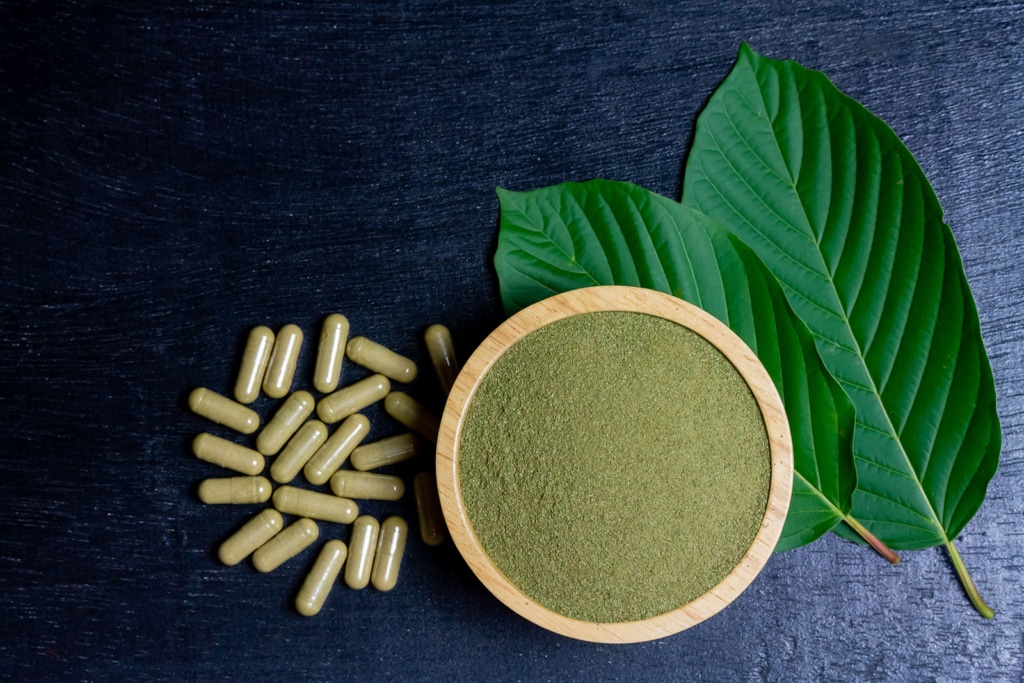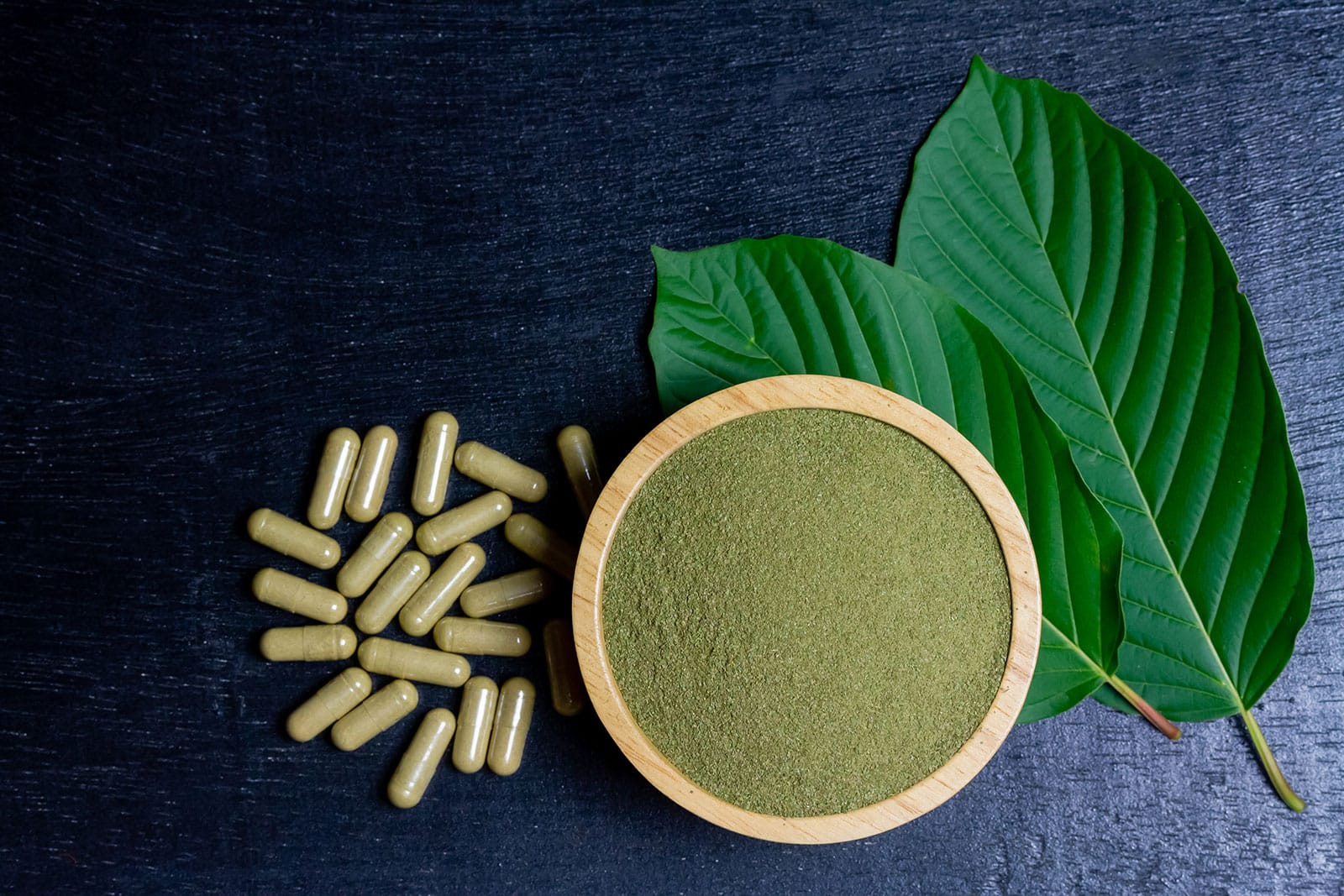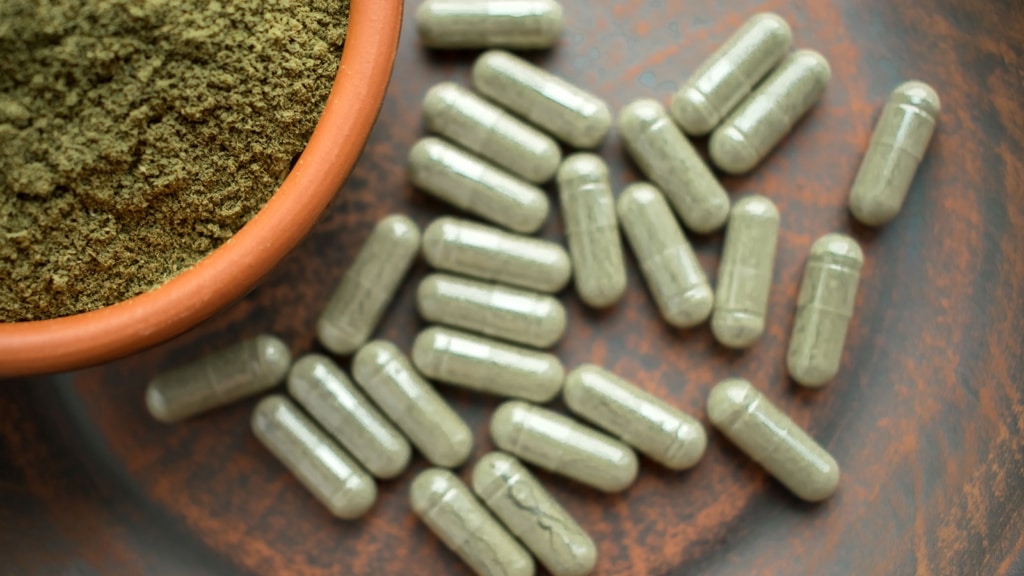Kratom is a plant-based substance with multiple effects on the nervous system. While not all states ban the use of this drug, it has highly addictive properties that lead to strong dependence and withdrawal effects, making it challenging to quit without support.
If you or someone you love are struggling with kratom addiction in New Jersey, this guide is here to explain everything you need to know about the drug.
This includes its effects, signs and symptoms of kratom addiction, and possible treatment approaches.

Table of Contents
- 1 Understanding Kratom Addiction
- 2 How Common Is Kratom Addiction in New Jersey?
- 3 Causes of Kratom Addiction
- 4 Signs and Symptoms of Kratom Addiction
- 5 How to Treat Kratom Addiction
- 6 The Importance of Medical Supervision During Kratom Addiction Treatment
- 7 Is It Common to Relapse After Kratom Addiction Treatment?
- 8 Final Thoughts: Finding the Best Kratom Addiction Treatment in New Jersey
Understanding Kratom Addiction
Kratom is the common name of “Mitragyna speciosa”, which is a tropical leafy plant native to Southeast Asia, including Thailand, Malaysia, Myanmar, and Indonesia.
The leaves of the kratom plant contain unique alkaloids, known as “mitragynine” and “7-hydroxy mitragynine”. These compounds produce stimulant and opioid-like effects, ranging from pain relief and mood elevation to anxiety reduction and increased energy.
The leaves of the plant are used in many forms, including chewing, smoking, and in the form of herbal tea. Recently, the crushed leaves are also consumed in the form of tablets.
Kratom Addiction Severity
Despite the plant’s long history of use, the Food and Drug Administration (FDA) hasn’t approved kratom for any medical use nor established its safety or efficacy for treating any conditions.
One of the main reasons why the drug isn’t approved by the FDA is that it has highly addictive properties. Continuous use of kratom can lead to intense craving for a higher dose and physical dependence.
In other words, the body adapts to its presence and experiences strong withdrawal symptoms upon stopping or reducing its dose. These symptoms can include irritability, anxiety, muscle aches, fatigue, headache, and insomnia.
In addition to its addictiveness, kratom also has other serious side effects on the body, including:
- Respiratory depression
- Tachycardia
- Hypertension
- Liver toxicity
The risk of addiction typically increases with higher doses and more frequent use, which is why it’s essential to address kratom addiction as quickly as possible.
How Common Is Kratom Addiction in New Jersey?
Since kratom is a relatively new drug, it’s not as heavily documented or studied as other abused substances like cocaine, methamphetamine, and heroin.
However, a report by the Substance Abuse and Mental Health Services Administration (SAMHSA) mentions that around 1.7 million people above the age of 12 used the drug at some point in 2021, which is around 0.6% of the entire U.S. population.
Technically speaking, the use of kratom is not illegal in New Jersey or on a federal level. However, their multiple attempts to criminalize the drug in the state were introduced, most notably the NJ A2865 bill.
Additionally, the Drug Enforcement Administration (DEA) considers kratom a drug of concern because of its harmful effects on people who use it.
Causes of Kratom Addiction
Understanding the causes of kratom addiction is essential for long-term recovery, as it helps individuals understand the root causes of addiction and gives them the necessary rehabilitation to avoid substance use triggers in the future.
It’s also important to know that there isn’t one specific cause behind kratom addiction, as each individual can have their own triggers and motives behind drug abuse. However, several factors might contribute to kratom dependence, such as:
- The legal availability of kratom might facilitate its accessibility to individuals, whether they’re using it for self-medication or for recreational purposes. This greatly increases its addictive potential.
- Social influences like peer pressure can push some people to try kratom, which typically ends up causing dependence and addiction.
- Pre-existing mental health conditions like anxiety, depression, or Post Traumatic Stress Disorder (PTSD) can increase the risk of kratom abuse for self-medication.
- Having a family history of substance use disorders also increases the risk of experimenting with recreational and mind-altering drugs like Kratom, which has been established by various studies.
In many cases, kratom addiction might be a result of a combination of the previously mentioned factors in addition to case-specific factors.
Signs and Symptoms of Kratom Addiction
Recognizing the effects of kratom addiction is essential for seeking guidance with this condition. Additionally, the earlier a person seeks help for kratom addiction, the easier their treatment process will be.
Here’s a brief overview of both the early and late symptoms of kratom addiction, which include both physical and psychological ones:
Early Signs of Kratom Addiction
- Increased tolerance and compulsive use, which leads to increasing the dose of kratom to achieve the same effects
- Neglecting social, academic, and professional activities
- Secretive behavior
- Noticeable fatigue due to insomnia and a constant state of alertness
- Irritability and behavioral health issues, which leads to problems in personal and familial relationships
Late-Stage Symptoms of Kratom Addiction
- Severe withdrawal symptoms between periods of kratom use, which include depression, sweating, restlessness, and general discomfort
- Occasional vomiting, diarrhea, and chills
- High blood pressure and heart rate
- Seizures (in rare cases)
- High risk of liver damage
- Financial and social ruin
- Body weight fluctuations (weight loss or gain)
How to Treat Kratom Addiction
Despite the complexity of kratom treatment, it’s perfectly possible with the right treatment plan under the supervision of healthcare providers. Here’s a quick look at the most common techniques to treat kratom addiction.
1. Drug Detox
Medical detoxification is the first treatment option in the case of addiction where the body removes kratom and its metabolites from the body to get rid of its effects.
Ideally, this step should be supervised by a qualified medical professional, although it can be done in treatment centers (inpatient treatment) or at home (intensive outpatient treatment).
Detoxification is usually medically managed to provide comfort and reduce the severity of withdrawal symptoms by tapering its dose and using supportive medications.
2. Behavioral Therapy
Different forms of therapy can help individuals identify and change maladaptive thought patterns and behaviors that led them to kratom addiction.
The most popular form of behavioral therapy is Cognitive Behavioral Therapy (CBT), which helps patients learn self-control to fight triggers and potential relapse. Other popular forms of therapy include:
- Motivational interviewing
- Dialectical Behavior Therapy
- Family therapy (to offer support and fix relationship problems that could have led to addiction)
3. Support Groups
Connecting with others who understand the challenges of overcoming kratom addiction can provide various benefits, such as encouragement, emotional support, and growing a sense of community.
Being surrounded by others who maintain a healthy sober life can also give hope to those who suffer from multiple relapses after recovery.
4. Holistic Treatments and Approaches
On their own, holistic treatments may not be enough to treat kratom addiction, but they can be a highly effective complementary treatment for kratom addiction.
These forms of therapy focus on achieving a state of mental and physical well-being, which helps individuals feel at peace and reduces the risk of stress that leads to relapsing. These approaches include mindfulness meditation, yoga, and acupuncture.
5. Sober Living Homes
These structured residences can provide a supportive and drug-free environment after initial treatment, helping individuals rebuild their lives and avoid relapse.
Sober living homes usually include qualified staff to address the medical needs of individuals who recently recovered from kratom addiction. They’re also considered an intermediate phase between intense residential treatment and returning to normal life.
The Importance of Medical Supervision During Kratom Addiction Treatment
One important thing to note about kratom addiction treatment is that it requires medical supervision to ensure its safety and efficacy.
Kratom withdrawal can be quite uncomfortable and even borderline dangerous, especially for individuals with long-term use or co-occurring mental health conditions.
Under supervised treatments, medical professionals can monitor the withdrawal symptoms and provide any necessary medication for symptom relief while addressing any potential complications.
Is It Common to Relapse After Kratom Addiction Treatment?
Unfortunately, kratom addiction can be a chronic condition, especially with long-term use and high-dose consumption, so relapsing after kratom addiction is quite common among many patients.
However, various aspects can heavily reduce the rate of relapsing after kratom addiction treatment, such as:
- Seeking medical help while treating kratom addiction.
- Developing a comprehensive and customized treatment plan that includes therapy, support groups, and other evidence-based approaches based on the patient’s needs.
- Learning to identify and overcome addiction triggers
The Role of Family and Community While Treating Kratom Addiction
Besides the previously mentioned aspects to increase the chances of a full recovery, it’s also extremely important to build a strong support system around individuals suffering from addiction, and that’s where family and community come into play.
It’s essential for family members to offer their love and understanding to patients and encourage them to maintain their sobriety. Families can also seek the help of various addiction treatment resources to further enrich their knowledge about kratom addiction.
Similarly, having a strong community support system can help reduce the stigma associated with addiction, making it easier for individuals to seek help and stay in recovery.
Final Thoughts: Finding the Best Kratom Addiction Treatment in New Jersey
If you or your loved one is suffering from kratom addiction and you’re looking for the best possible treatment in New Jersey, consider contacting us!
NJ Addiction Resources offers a wide range of addiction treatment services and can help you connect with the best treatment centers.
Additionally, we provide a variety of information and resources to help you stay informed and discover new pathways and treatment programs to enjoy an addiction-free life.


